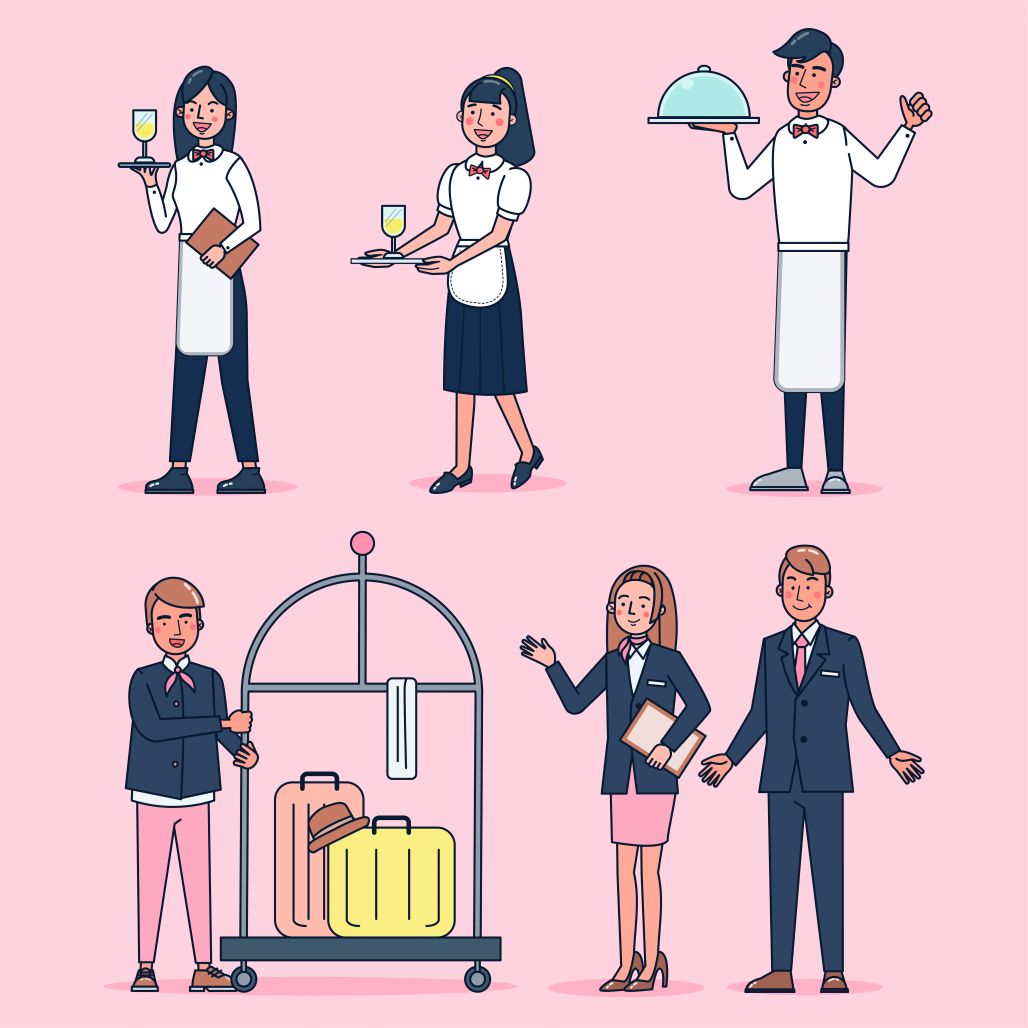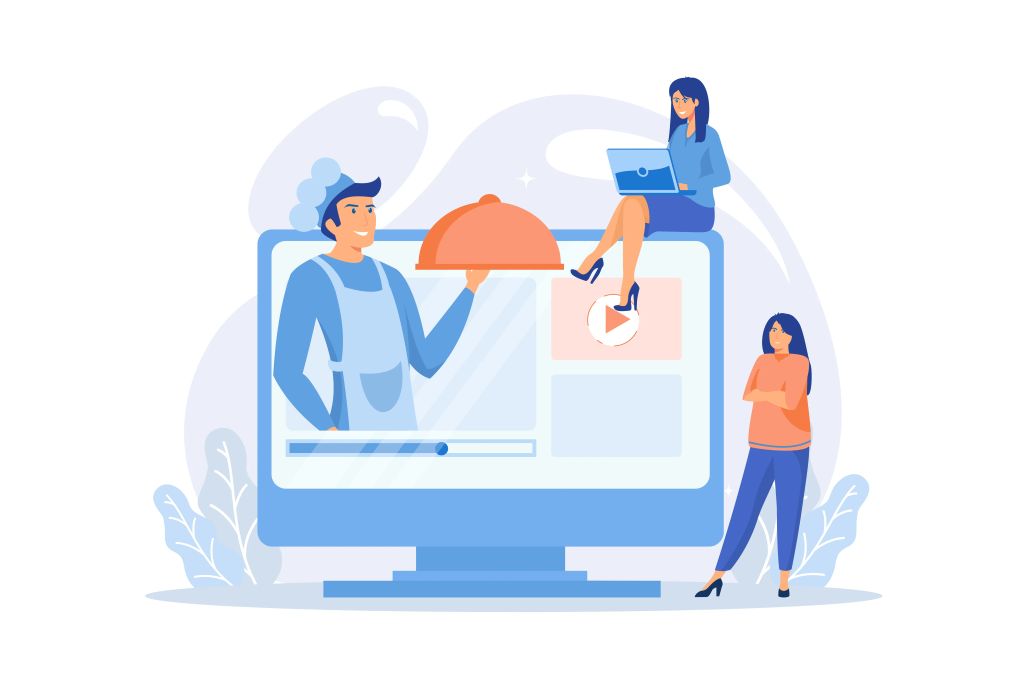In hospitality, compliance isn’t just about following rules—it’s about safeguarding guests, protecting staff, and preserving your brand reputation. Whether it’s food hygiene, workplace safety, labor regulations, or data protection, every lapse can result in penalties, lawsuits, or customer distrust.
Yet, training staff to stay compliant across different properties, roles, and regulatory frameworks can feel overwhelming. This is where a hospitality LMS transforms the game. By digitalizing compliance learning, you can standardize, track, and scale training with ease.An LMS in hospitality industry settings ensures staff stay compliant and operations run smoothly.
Many leading platforms—such as Calibr —offer AI-powered features that make compliance training more efficient, engaging, and tailored to hospitality needs.Using the best learning management software helps ensure compliance training is consistent, engaging, and measurable. Visit our website now to explore how their LMS can simplify compliance for your hospitality business or contact our team for more details.
What is the Hospitality Sector?
The hospitality sector is one of the largest service industries in the world, focused on delivering experiences, comfort, and customer satisfaction. It goes beyond hotels—it includes every business that provides food, lodging, travel, or leisure services. The sector is people-driven, with customer service and safety at its core, making compliance a critical factor.

Industries Under Hospitality & Where Compliance is Needed
The hospitality industry is broad and made up of several interlinked sectors:
Hotels & Resorts – Compliance in fire safety, hygiene standards, data privacy (for guest records), and labor laws.
Restaurants & Catering – Food safety (HACCP), allergen labeling, alcohol service licensing, workplace safety, and harassment prevention.
Travel & Tourism – Compliance with transportation safety, environmental regulations, and consumer protection laws.
Leisure & Recreation (Spas, Theme Parks, Casinos) – Health and safety, anti-money laundering (in casinos), employee safety, and licensing rules.
Event Management & Conferences – Crowd safety, vendor compliance, insurance requirements, and accessibility standards.
Even smaller segments like cafés, bars, quick-service restaurants, homestays, and rental properties fall under the umbrella of hospitality and must comply with local hygiene, fire, labor, and customer protection laws.
In short, compliance is not limited to luxury hotels—it spans every part of the hospitality ecosystem, ensuring safe operations, legal protection, and guest trust.
10 Ways an LMS Simplifies Hospitality Compliance

Below are ten ways the best hospitality training software simplifies compliance training for the compliance hospitality industry.
Standardized Training Across Locations
Hotels, resorts, and restaurants often operate across multiple sites. Without a centralized approach, each branch might interpret compliance differently—leading to risky inconsistencies. For example, one property may update food safety procedures immediately after a regulation change, while another continues following outdated rules.
A hospitality LMS like Calibr solves this problem by delivering the same compliance modules across all properties. This ensures consistent hotel compliance training for every location, protecting guests and staff alike. Whether it’s food safety, fire drills, alcohol licensing, or anti-harassment policies, employees everywhere receive identical training, ensuring uniform standards. Updates roll out instantly, eliminating lag between locations.
This level of standardization reduces compliance gaps, protects your brand, and saves money. A single non-compliance incident—like improper allergen labeling—can cost millions in penalties, lawsuits, and reputational damage. Centralizing training ensures all staff, regardless of site, are aligned with the latest protocols.
Keeping Up with Regulatory Changes
The compliance hospitality industry is constantly evolving. Food safety laws, alcohol service regulations, labor laws, and health inspections frequently change, and businesses must respond quickly. Traditional methods like manuals or in-person training often result in outdated information being used on the floor.
An LMS ensures compliance training is updated in real time. Using Calibr Craft, managers can rapidly create or revise compliance modules, embed new rules, and distribute them to staff instantly. Push notifications remind employees of updates, ensuring nothing slips through the cracks.
This agility helps businesses avoid penalties for non-compliance. With the right LMS, businesses not only meet regulations—they do so faster and at lower cost.
Role-Based Learning Paths
In hospitality, one-size-fits-all training doesn’t work. Kitchen staff need to master HACCP and allergen protocols, housekeeping requires chemical handling and safety procedures, while front desk staff must know GDPR and data privacy laws. Giving everyone the same compliance modules wastes time and reduces engagement.
With Calibr's personalized learning paths, employees receive only the training relevant to their role. This ensures they aren’t overloaded with unnecessary content while reinforcing the exact knowledge they need to stay compliant in their day-to-day tasks.
The benefits are twofold: staff remain engaged, and compliance training becomes more efficient. External research shows only 35% of organizations tailor compliance training to role-based risk profiles, despite its proven effectiveness (CloudAssess). By leveraging role-specific pathways, hospitality businesses can place themselves ahead of the curve.
Mobile and Multi-Language Learning
Hospitality businesses rely on a diverse workforce, including shift workers, seasonal employees, and multilingual teams. Expecting everyone to attend in-person training or learn in a single language often leaves critical knowledge gaps.
An LMS bridges these challenges with mobile and multilingual access. With Calibr Mobile Learning, employees can access compliance modules anytime, anywhere—even offline during travel or downtime between shifts. Combined with multi-language support, businesses ensure that language barriers don’t compromise compliance.
For example, a hotel chain operating in Europe and Asia can roll out the same compliance course in English, French, Hindi, and Mandarin simultaneously. This guarantees inclusivity and consistency across a global workforce. When compliance becomes accessible, completion rates rise, and operational risks fall.
Microlearning for Busy Schedules
Compliance training is often viewed as dense and tedious, which reduces employee engagement. Staff in hospitality already work long shifts under high pressure, leaving little energy for lengthy training sessions.
That’s why Calibr's Microlearning is so effective. By breaking down complex compliance topics—like fire safety, food handling, or harassment policies—into 5-10 minute modules, staff can learn in short bursts without disrupting daily operations. These bite-sized lessons are easier to absorb and quicker to revisit for refreshers.The flexibility of an LMS in hospitality industry operations makes it ideal for staff with varying schedules.
The approach works. A Typsy survey revealed that 86% of hospitality businesses provide less than 10 hours of ongoing training per year, which is insufficient for long-term retention (Typsy). Microlearning ensures employees continually update their knowledge in manageable steps, keeping compliance fresh and top of mind.
Real-Time Tracking, Reporting & Audit Trails
For hospitality compliance, proof is everything. Regulators, auditors, and even corporate leadership demand clear evidence that employees are trained, certified, and up to date .Paper records or scattered Excel sheets simply don’t cut it anymore.An effective compliance hospitality industry approach ensures this proof is reliable and easily accessible.
With Calibr Real-Time Analytics, managers gain instant visibility into employee progress. You can see at a glance:
Who has completed mandatory training
Who is overdue for renewal
Which departments or branches have compliance gaps
Audit-ready reports make external inspections far less stressful. Instead of scrambling to find documents, managers can generate compliance records in minutes. This proactive approach not only simplifies audits but also demonstrates accountability to stakeholders, investors, and regulators.
Certification and Accountability
Training without accountability is like locking the door but leaving the key in plain sight—it creates a false sense of security. That’s why certification is so critical in the compliance hospitality industry.
With Calibr’s assessments and certification features, employees are tested after modules to confirm understanding. Once passed, they earn valid certificates that can be tracked, renewed, and stored in a centralized system.These features make Calibr one of the most effective hospitality compliance solutions available.
This ensures:
Staff don’t just click through modules but genuinely absorb protocols
Expired or lapsed certifications (like HACCP, fire safety, or alcohol serving licenses) are flagged automatically
Risk exposure from unqualified employees is minimized
Gamification to Boost Engagement
Let’s face it: compliance training isn’t always exciting. Food safety guidelines or fire evacuation protocols don’t naturally spark enthusiasm. That’s where gamification comes in.
By adding badges, points, leaderboards, and challenges, Calibr Gamification transforms compliance from a chore into an engaging experience. Employees compete with peers, celebrate milestones, and feel motivated to excel rather than just “tick the box.”
Research shows gamified learning can increase engagement making it one of the best hospitality training strategies to keep staff invested in compliance.
Scalability During Growth or Seasonal Peaks
The hospitality industry thrives on growth and adapts to demand surges—whether it’s peak holiday seasons, summer resort traffic, or large-scale events. With high turnover and seasonal hiring, businesses need to onboard staff quickly while ensuring compliance.
A best LMS for employee training like Calibr solves this challenge by scaling effortlessly and It’s one of the best learning management software solutions for hospitality compliance, streamlining training across all properties. Whether you’re onboarding 50 new staff for a single hotel or 500 seasonal workers across multiple resorts, training modules can be rolled out instantly. Everyone gets the same consistent, compliant training, no matter when or where they join.
This scalability ensures compliance remains intact even during rapid expansion or seasonal peaks, safeguarding both operations and guest safety.
Cost Efficiency & Risk Reduction
At first glance, investing in an LMS may seem like an added cost. But in reality, it’s a strategic cost-saver. Traditional compliance training involves expenses like:
Hiring trainers and paying their travel costs
Printing manuals and updating them with every regulation change
Pulling staff off shifts for classroom sessions
An LMS like Calibr eliminates much of this. Staff learn on-demand, at their own pace, without disrupting service operations. Updates to regulations are rolled out digitally, cutting printing and admin costs.
More importantly, the biggest savings come from risk reduction. Fines, lawsuits, or reputational damage from non-compliance can cost millions. Efficient hotel compliance training through an LMS minimizes exposure to fines and legal issues According to a CrunchTime report, 69% of operators say compliance training in areas like allergen safety, harassment prevention, and OSHA standards is vital to minimizing operational risk.
In short, a hospitality LMS isn’t just about training—it’s about protecting your bottom line.
Why It Matters for Reputation & Guest Trust
Compliance is customer experience. Guests notice cleanliness, safety, and consistent service — and they share both praise and complaints fast.Strong hospitality compliance reinforces guest confidence and demonstrates a commitment to safety
Impact on reputation:
A single food safety incident spreads online and erodes trust quickly.
Consistent, visible hygiene practices and staff competence build positive reviews and repeat business.
Transparent proof of staff training (certified teams, hygiene badges) can be a marketing advantage.
Practical steps to align compliance with guest experience:
Publicly highlight certifications and hygiene scores where appropriate (menus, reception, website).
Train staff to communicate safety actions clearly to guests (e.g., “Our chef is HACCP certified”).
Use compliance milestones in staff recognition to show guests your investment in safety and quality.
When compliance becomes part of service delivery, it strengthens both safety and the guest’s perception of care and this can be achieved with the help of Calibr's Compliance training solutions . Using trusted hospitality compliance solutions like Calibr ensures staff follow protocols reliably, boosting guest confidence.
Conclusion — Turn Compliance into a Competitive Edge
Compliance is more than rule-following. It protects guests, empowers staff, and preserves brand value. Integrating hotel compliance training ensures every employee is prepared, maintaining trust and service excellence.A hospitality LMS ties all the pieces together: standardized content, real-time proof, certified accountability, engaging delivery, and instant scalability.
If you want to see how this comes together:
Try Calibr Learn for AI-driven adaptive compliance paths.
Use Calibr Craft to update policies fast and push changes instantly.
Tap Calibr Content Hub to centralize reusable compliance modules.
Sign up for a 14-day free trial to experience Calibr’s AI-powered compliance training firsthand.
Schedule a personalized demo with our team to see how it fits your business needs.
Contact our team for any questions or custom implementation support.


